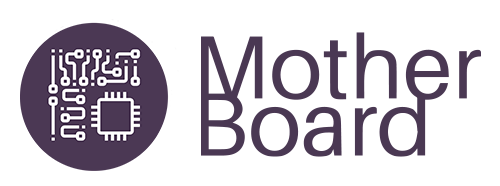Allyship in Action ft. Stu Care
As part of our ‘Allyship In Action’ series, we caught up with Stu Care, Developer at Aer Studios.
The purpose of our 'MotherBoard’ content series is to highlight incredible working mums within tech & data, as well as individuals and businesses that are supportive and progressive within their approach to creating more inclusive tech & data teams for women.
Can you tell us a little bit about yourself and your current role?
I’m Stu Care, a developer at Aer Studios, a southwest-based, creative technology studio. I’ve been a developer for just over a decade and I’ve more recently taken a keen interest in people and culture. My work ranges from frontend typo corrections to backend service maintenance and migration, I work primarily with JS/TS in Node.
What does being an ally for mums in tech mean to you?
For me, being an ally is about being present in the conversation. It’s my desire to take an active interest in our policies as we go through the journey of updating them
It’s also about giving a little time and lending an ear. The only way to be inclusive is to understand the challenges and needs of those excluded so facilitating that has to be a big part of being an ally.
What are the most important traits it takes to be a good ally?
Trying to narrow this down was a challenge but the top 3 for me are empathy, being a good listener, and a willingness to be wrong.
Empathy when listening to others and the desire to listen to them without the impact of privilege and bias is absolutely essential. Doing so without actually listening to them is pointless though. Being a good listener and hearing what has been said is critical to then helping influence the right change.
It is okay to get it wrong occasionally though, we all do.
“The most important traits to be a good ally are empathy, being a good listener, and a willingness to be wrong.”
Why do you think it’s important to make the tech industry more inclusive of mothers and working parents?
Why shouldn’t/wouldn't we strive for inclusivity? Being a mum means problem-solving, negotiating and communicating, all at once. Those three skills are pretty essential in tech, where problem-solving is basically a superpower!
It’s not that no-one else can bring that, of course they can, but working parents exercise those muscles a lot. Just like learning a language, the people who do it best, do it regularly.
From a business point of view we should constantly try to reflect our user base's diversity so that we can provide the most appropriate solution for any problem. Our user base is about as big as it gets and it definitely includes working mums!
What do you think is the main hurdle stopping employers from being more inclusive?
I think one of the bigger hurdles is a reluctance to trial change. Whether it’s flexible working hours, remote opportunities, or part-time roles with genuine career paths; being open to trialling change shows progress and invites further conversation.
My role is based around delivering incremental change, tweaking and fixing to get the best solution and one critical part of that is reviewing, listening to feedback and adjusting. That has to feel like a sensible approach.
“It never hurts to ask the first question. Wherever you sit in your organisation, managerial or not, every change needs a catalyst.”
What do you think the priority should be for creating tangible change for working mums in tech?
I have an incredible wife and a beautiful daughter and I remember the frustration that my wife felt during her maternity leave as she tried to negotiate her return to work. The anxiety of getting it wrong was massive and every option had an apparent drawback.
I think that has to be the priority, not only does it affect a new mothers maternity leave but also is formative of their relationship following that time. Having a transitional period following maternity where the decision isn’t so final could easily reduce stress, anxiety and even serve to increase a mum’s desire to return to work.
Who do you think is responsible for making the change?
The responsibility for change is collective - government policies need to support working parents, business leaders must champion and implement inclusive practices, hiring managers should actively seek to diversify their teams, and individuals can advocate for and support their colleagues.
I am a listener and supporter but don’t have the ability or expertise to write change into policy. By working with others with different skills and opportunities, together we can make actual, impactful progress.
Any final words of advice for other people looking to better support mothers in the Tech Industry?
It never hurts to ask the first question. Wherever you sit in your organisation, managerial or not, every change needs a catalyst.
MotherBoard is a Business Charter, Community & Event Series, driving tangible change for mums working in the tech industry.
Interested in getting involved? Become a signatory today

